The 2014 Glenfiddich Championship spawned piping of a very high standard; not any better than we hear at Oban and Inverness, but every bit as good. And so it should be. These are the top players of our time and, in the ceol mor, they do not have set tunes to worry about.
Before I get to the actual performances, some thoughts. The great hall at Blair Castle continues to attract a substantial and knowledgeable crowd, this despite live streaming over the internet which, at its peak, recorded 2,000 viewers worldwide. There were some grumbles about accessibility. These would probably have been due to domestic browser issues rather than any flaw in the technology link via the National Piping Centre’s web portal.
That audience, cyber and actual, has to endure insufferable tuning from the pipers. With no lights telling them to get on with it, some were at it for over 10 minutes before they began. It must add a couple of hours onto the day, time that would be better spent on refreshment/ comfort breaks.
Clearly the organisers do not like criticism (body language speaks volumes), but that does not mean we should flinch from saying what we believe to be correct. The thinking is that the pipers do not want tuning lights and therefore the pipers shall not have tuning lights. Well, if that is the case, they should not charge the audience an admission fee. Like the Press, let them in for free. My view, and that of everyone I spoke to, was that the time taken for tuning besmirched what was otherwise a wonderful spectacle. If tuning lights are good enough for the Argyllshire Gathering and the Northern Meeting they should be good enough for Glenfiddich.
That aside, the competition was very well run, with the Atholl Highlanders super efficient at the stewarding from what I could see, and Bob Worrall a genial Fear an Tighe, coping admirably with unforeseen gaps in the running order. Behind the scenes and front of house, staff from Glenfiddich and the Piping Centre carried out their duties with smiling graciousness.
The playing: There were three outstanding performances in the piobaireachd, from the winner Roderick MacLeod, from runner-up Bruce Gandy and from third placed Stuart Liddell. Any of them could have been placed first without grumble. Of the three, Roderick had the easiest tune, Isabel MacKay. It was a model of control, expression and timing. The only possible criticism could be a sameness in tempo, ground to taorluath singling. But, seduced by the instrument and the interpretation, this became a secondary concern for me. Bruce Gandy produced another quite wonderful bagpipe. It may not have had the depth and resonance of Roderick’s, but it was rock solid and perfect on every note. His Big Spree captivated throughout and a slightly rigid treatment of the ground and variation 1 doubling, was again of secondary concern to this listener. The eventual champion, Stuart Liddell, gave us a masterly demonstration of ceol mor phrasing and timing. Of the top three, his Lament for Colin Roy MacKenzie was by some distance the most demanding piece – but no bother to Stuart. The pipe, the finger, all contributed to a definitive reading of Angus MacKay’s fine variations, and he finished with some aplomb in the a mach. Of the others, I enjoyed the Rout of the Lowland Captain from William McCallum – except for the roundish treatment of Variation 2 singling and doubling and it doesn’t send out the right signals when he plays the crunluath with his back to the judges. Douglas Murray, fresh from his double Gold Medals, played I Gave a Kiss to the King’s Hand in a controlled, competent fashion but the chanter reed seemed to have opened up slightly on the stage producing a more strident sound and a small half choke. Ian Speirs‘ Prince’s Salute was hampered by an inconsistency in connecting notes throughout: some were long, some were short, some in between. Gordon McCready never got the high G right in the Earl of Seaforth’s Salute and you cannot deliver the Earl of Seaforth’s Salute without the right high G. Jack Lee had a true sound from his pipe but the drones had an unusual timbre. Perhaps it was the acoustic in the great hall or some new reeds he was trying. Either way, they didn’t help Patrick Og impress, nor did a missed chedari and a Variation 1 doubling slightly off pulse. Angus MacColl gave us the Bells of Perth. The introductory Es were neither cut nor melodic, but a strange in between compromise which proved contrary to the expected bell-ringing rhythm. Ditto the pendulum variation. Good instrument. Niall Stewart had a wonderful pipe. It filled the room with harmonic depth. It wasn’t enough to save his Lament for the Children however, but stood him in great stead for the ceol beag as we shall see. He tended to bring the gracenote after the double echoes in slightly early in the ground and ground doubling and this detracted from what was an otherwise well phrased beginning. He lacked pointing in the taorluath and crunluath. A disappointing finish after a good start.
Result: 1 R MacLeod 2 B Gandy 3 S Liddell 4 W McCallum 5 A MacColl
MSR
The winner here, and by the length of Glen Tilt, was Niall Stewart. Continuing where he left off from the Northern Meeting, he started with a beautifully flowing, effortless Mrs Duncan MacFadyen, perfect tempo, just enough phrasing not to spoil momentum, not a finger out of place and that definitive bagpipe which never budged through his spritely strathspey and reel. It all looked so easy – the sign of a real maestro at work. The above could also hold for Stuart Liddell, though his delivery was not just as smooth as Niall’s and he had a small fluff at the start of the strathspey. William McCallum was third, and, as we have come to expect, gave nothing away. Maybe it was where I was sitting (six rows back from the front) but there were one or two passages of technique which did not come across crystal clear. Bruce Gandy came fourth and again the playing was as good as you will hear. Bruce’s only flaw was a slight lack of control half way through the Brown Haired Maid first time through, but, consummate professional that he is, he quickly restored control and secured his prize. Fifth was Douglas Murray whose pipe was better than in the piobaireachd. Hurrying on in the reel may have cost him. Of those not in the list I was surprised Gordon McCready didn’t figure. Maybe the top hand work in the march was a tad too open for the judges’ taste but outside of that I felt this was a performance hard to fault. Iain Speirs lacked pointing, especially in Dora MacLeod (gracenote on top of the birl at the start of the third part, gracenote too early on high A in the last), Jack Lee broke down when going well, Angus MacColl was guilty of rushing in the reel as was Roderick MacLeod.
Result: 1 N Stewart 2 S Liddell 3 B Gandy 4 W McCallum 5 D Murray
All things considered this was a wonderful exhibition of the highest quality piping and we should be grateful to Wm Grant & Sons for their ongoing commitment to our music. Catch the highlights on the BBC ‘Pipeline’ show, or re-run from the Livestream cache on the Piping Centre website.

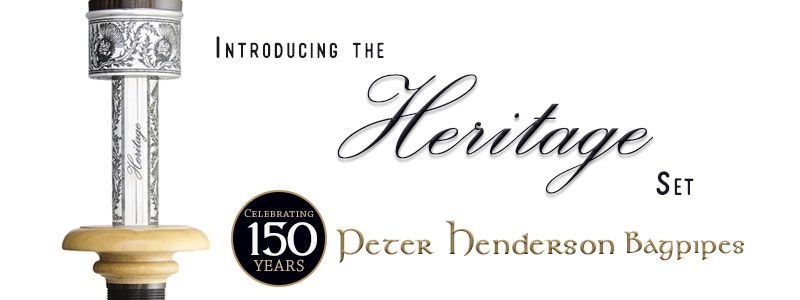

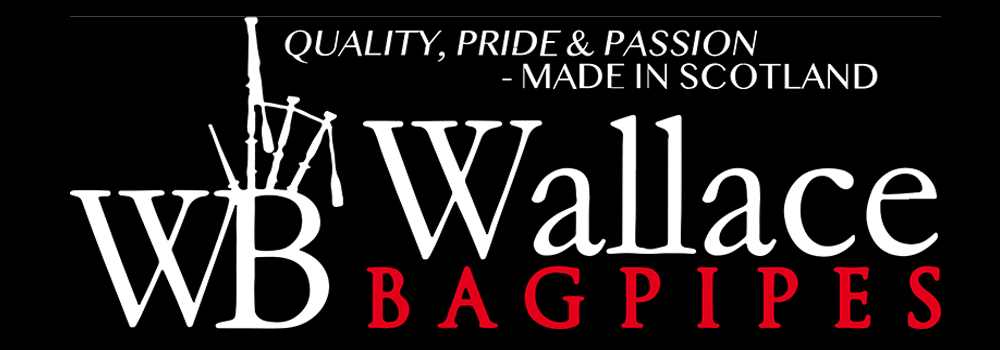
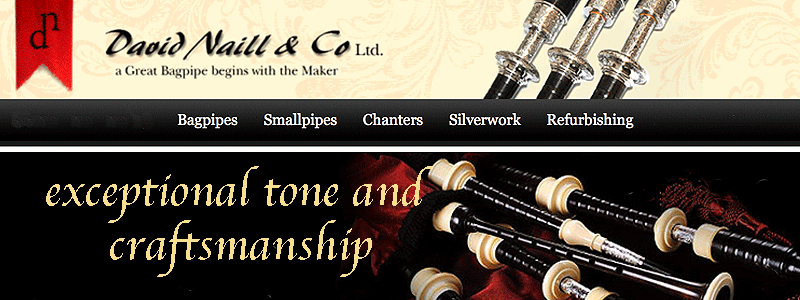



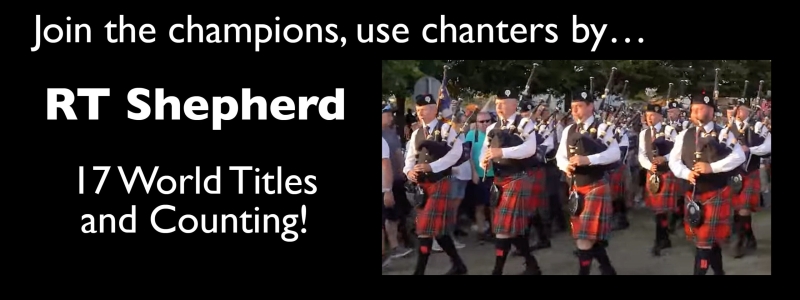





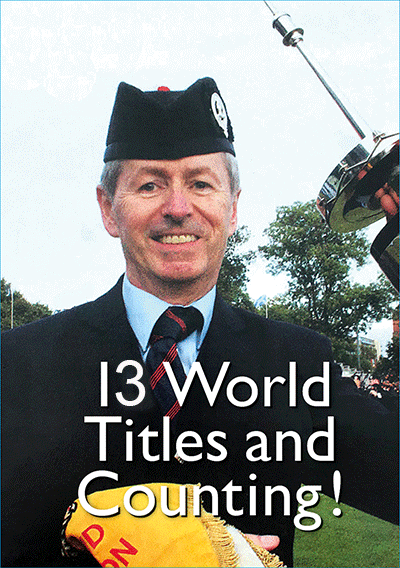
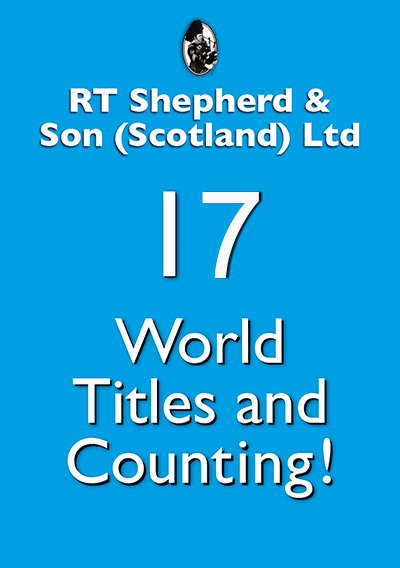
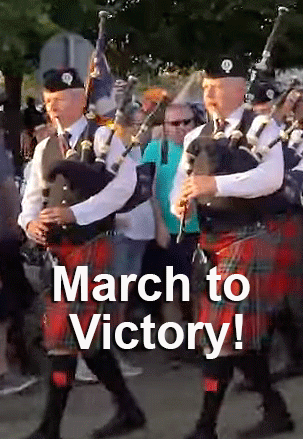







I would have loved to watch the live stream but it just kept freezing up – and it was not a problem at my end as I tried some other live transmissions.
Yours,
Andrew Walley.
Nothing beats a quiet Sunday morning [after returning from whatever religious service you are] than a cup of hot coffee and a review of one of piping’s prestigious events; by piping’s ” most interesting man”.
Good job Robert – watched it on livestream.